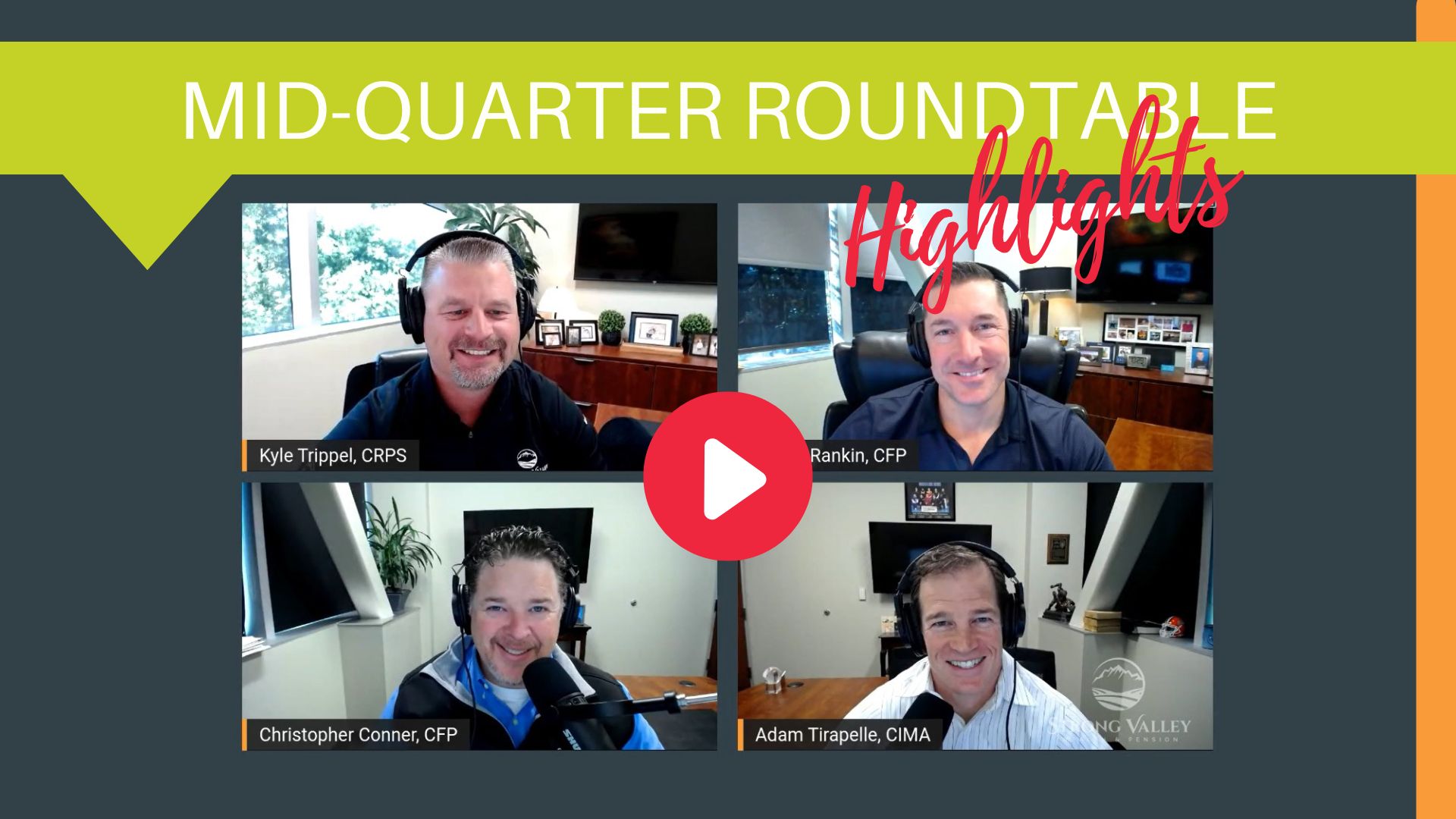You are now leaving the Strong Valley Wealth & Pension, LLC ("Strong Valley") website. By clicking on the "Schwab Alliance Access" link below you will be entering the Charles Schwab & Co., Inc. (“Schwab”) Website. Schwab is a registered broker-dealer, and is not affiliated with Strong Valley or any advisor(s) whose name(s) appears on this Website. Strong Valley is/are independently owned and operated. Schwab neither endorses nor recommends Strong Valley. Regardless of any referral or recommendation, Schwab does not endorse or recommend the investment strategy of any advisor. Schwab has agreements with Strong Valley under which Schwab provides Strong Valley with services related to your account. Schwab does not review the Strong Valley website(s), and makes no representation regarding the content of the Website(s). The information contained in the Strong Valley website should not be considered to be either a recommendation by Schwab or a solicitation of any offer to purchase or sell any securities.

Instead of being tossed about by constant worry over your finances, keeping track of your finances with money management disciplines can help you focus on the important issues that affect your entire financial picture. Taking charge of your money can give you peace of mind and potentially free you to enjoy your life and prepare for your future.

Successful money management requires ongoing discipline. Each year, you should pull all your records together and take a close look at your entire financial picture. Here are six steps that can help you put your financial affairs in order:
In your budget, does your income equal or exceed the amount you put into savings and fixed or variable expenses? If it exceeds the amount, by how much? The amount of income that exceeds what you saved or spent is called positive cash flow. If your expenses exceed your income, you have negative cash flow. If your cash flow is negative, it may be time to reorganize and minimize any unnecessary expenses in your budget.
For every financial goal you establish, you need to address the projected cost, the amount of time until your goal is to be realized (time horizon), and your funding method (e.g., a scheduled savings plan, liquidating some assets, or taking a loan).
You should plan your goals on three tiers. On the first tier, you have an emergency fund of at least three months of income. On the second tier, you may have a special goal and may, for example, establish a savings plan for your children’s weddings or educational expenses. Finally, on the third tier are more flexible goals such as purchasing an automobile, renovating your house, and planning a vacation.
Are you going to have enough money when you retire?
Pensions and Social Security may not provide enough income to maintain your current lifestyle during your retirement years. Therefore, review your retirement needs and plan a disciplined savings program for your retirement.
Many taxpayers reduce their taxes by taking advantage of tax deductions. Most are familiar with common deductions (e.g., mortgage interest, contributions to retirement plans, and donations to charities). In addition to tax deductions, however, there may be other ways of reducing your income tax bite. For example, under appropriate circumstances, losses or expenses from previous years may be carried over to the next tax year.
Let’s say the inflation rate is currently 2%. In order to maintain your buying power—just to break even—you need a 2% annual wage increase. A decline in your buying power will certainly lower your standard of living and affect your lifestyle. In the end, you’ll have less money if inflation starts to beat you. Consequently, you need to put your money to work to beat inflation.
You are probably well aware that life sometimes throws us unexpected “curve balls”—that is, unforeseen risks. Suddenly and unexpectedly, your potential risk may become a financial loss (e.g., you become disabled without income or an untimely death causes financial hardship for your family). As a result, many have made insurance the cornerstone of their overall finances because it offers protection that can help cover unforeseen potential liabilities and risks.
These six steps can help you focus on the important issues that affect your finances. If you faithfully keep track of your progress in these important areas, you may be able to build a financial foundation that can help you afford your future and finance your dreams.



